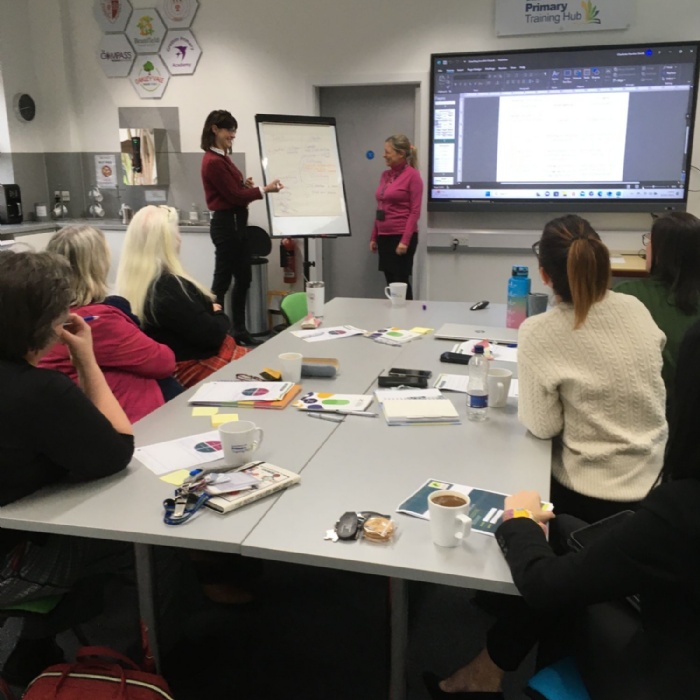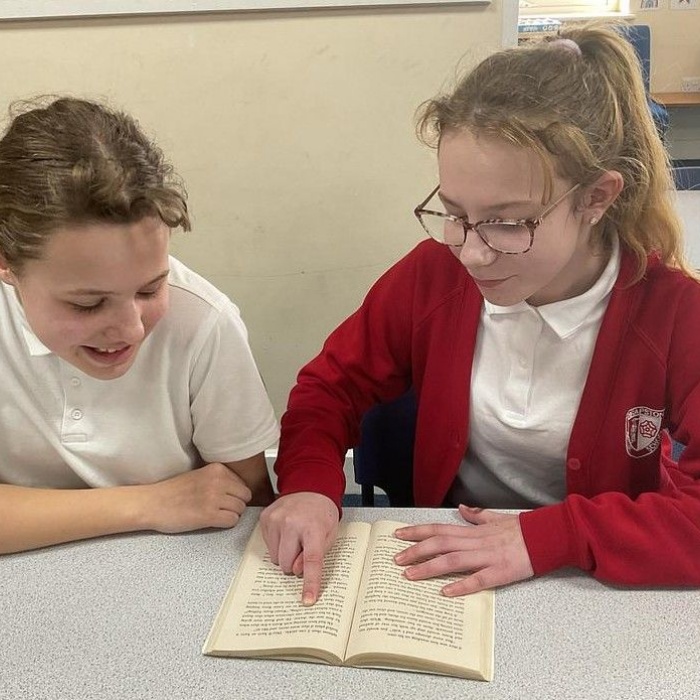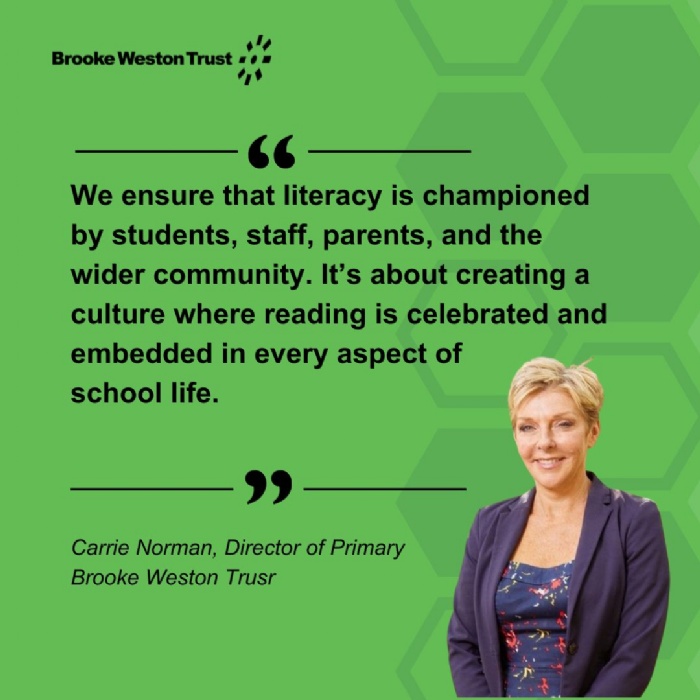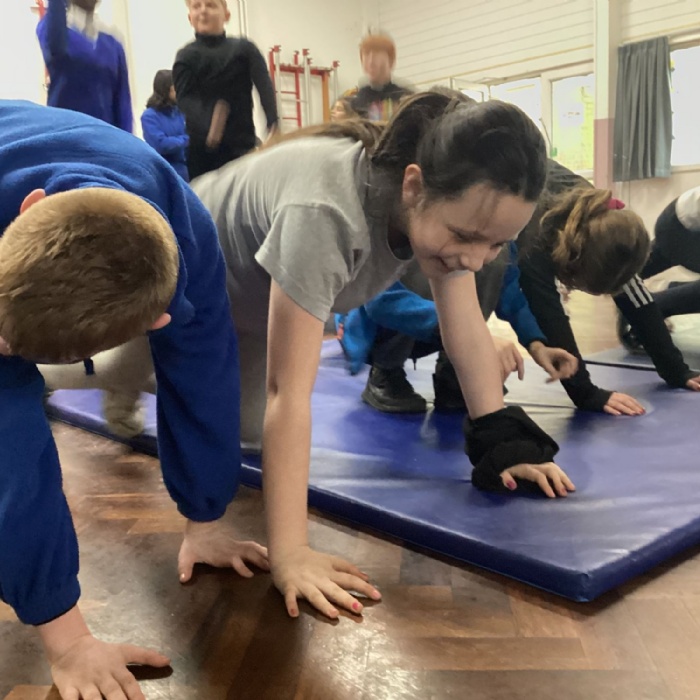Bringing ‘Coaching Culture’ to life at Brooke Weston Trust

In the dynamic landscape of education, fostering a culture of continuous improvement and professional growth is essential, and Brooke Weston Trust (BWT) this approach is embodied in the values of ‘ambition for all’ and one of our six pillars or our People Strategy being’ High quality and accessible CPD for everyone’. We have embarked on a journey towards integrating coaching principles in the way we lead, manage, and engage our colleagues, enhancing problem -solving and increasing autonomy in day to day working.
A key aspect of this is the Trust’s collaboration with OLEVI, an organisation renowned for its pioneering work in professional learning within the education sector.
OLEVI’s approach to coaching is about imparting skills, prompting shifts in practice, approach, and developing organisation culture. Through powerful learning programmes, OLEVI empowers educators to become high-performing professionals who, in turn, lead the way in transforming their educational environments.
Directors of Professional Development, Charlotte Hawker Smith and Dr. Rachel Lawrence are leading the 'Power of Coaching' programme at BWT with our Head of People and People Business Partners undergoing train the trainer with Olevi as we speak, providing increased capacity for our coaching programme delivery. Rachel explains the significance of coaching as a universal tool for effective communication: “The OLEVI ‘Power of Coaching’ programme, is a wonderful introduction to how coaching can be used effectively in school communities. We have found that it is relevant to all colleagues in the Trust, whatever their role, because it helps us to communicate effectively. The programme gives opportunities for colleagues to practice their coaching skills, and to see how powerful coaching can be.”
The commitment of BWT to cultivating a coaching culture speaks volumes about its priorities. Recognising that people are their most valuable resource, the Trust views coaching not as a short-term nice-to-have but as a long-term investment in professional growth and enabling organisational excellence.
Andy Burns, Director of Education at BWT is a Qualified Coach and shared more about his decision to pursue coaching qualifications. He recalls that transitioning from an Executive Principal to a Regional Lead presented challenges in building relationships swiftly with some school leaders. Recognising the potential of coaching in bridging this gap, he embarked on the ILM Level 7 Coaching Programme. "ILM’s course was fantastic," said Andy "it involved lots of learning with like-minded people, theory work, assignments, and the opportunity for practical application of those coaching skills."
In his role, Andy utilises coaching both formally and informally, emphasising its role in empowering individuals to find solutions autonomously. "If you can find time to coach a solution, it creates so much more capacity in people," he says. Emphasising the cultural aspect of coaching, Andy sees a future where coaching conversations become the norm in all line management interactions.
Another advocate of coaching culture is Jayne McCallum, Director of School Improvement at BWT. As a qualified coach herself, Jayne sees coaching not just as a skill, but as a philosophy that enhances our understanding of ourselves, and others and it is crucial in any progressive organisation. "Connection with people has always been important to me," she said. "Facilitating others to make significant connections with those around them is a crucial part of my role."
Jayne understands the transformative power of coaching within the educational setting. By incorporating coaching principles, she and her fellow leaders are better equipped to influence, relate, innovate, and collaborate, thereby enriching the educational experience for our young people.
Jayne continues, "I believe that coaching elevates my own leadership capabilities. One could argue that coaching is best practice for leaders." Through coaching, Jayne fosters a culture of continuous improvement, empowering individuals to ask, "Are we the best possible version of ourselves?"
Dale Campbell, Group Catering Manager, testifies to the versatility of coaching techniques across various roles and levels within the Trust. "I was pleasantly surprised at how the coaching techniques shown on this course can be transferred to my role within Catering," he said.
The 'Power of Coaching' programme, an integral part of BWT's Centre for Professional Development offering, is a testament to the Trust's dedication to fostering a coaching culture. Open to all colleagues, irrespective of their role, the programme fosters rich discussions and collaborative learning opportunities.
As BWT continues to champion a culture of coaching, it paves the way for a future where every member of its community is further empowered to thrive, enabling Ambition For All.
Would you like to develop your coaching skills?
The OLEVI ‘Power of Coaching’ programme is now underway and is delivered as part of the BWT CPD Centre programme. The course is open to all colleagues in Brooke Weston Trust as part of our commitment to creating a coaching culture across the Trust. Colleagues in this cohort include teaching and professional support staff, and this has created opportunities for rich discussions and learning from each other.
We will be running the course again in the summer term, if you are interested in taking part you can find out more here: BWT CPD (genial.ly)







